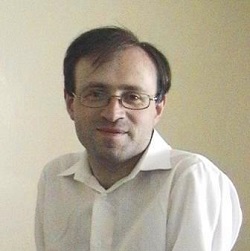Dr Paul March-Russell, Specialist Associate Lecturer in the Department of Comparative Literature, will be the keynote speaker at a postgraduate conference entitled ‘Bridging the Divide: Literature and Science’ on 3 June 2016 at the University of Kent.
The relationship between literature and science has been a perennial subject of debate. Is there a divide between these two fields, or are they in fact two sides of one thing? The conference organised by the Universities of Kent and Sussex aims to interrogate discourses around this subject.
Paul’s talk entitled ‘Ethics, Singularities and other Dimensions: Bridging the Divide (or Minding the Gap) in Henry James and M. John Harrison’ seeks to pick-up from the ethical-critical approaches to the work of Henry James from the late 1980s and 1990s (e.g. Robert Eaglestone, J. Hillis Miller) and to link those strategies to the concept of ‘singularity’ in literary theory and criticism (cf. Derek Attridge).
Secondly, it looks to link this notion with the versions of singularity to be found in the biological, computing and physical sciences. The talk intends to argue that, though this concept takes on different meanings within these different discourses, there remains an underlying affinity connected with radical difference and the limits to reasoning, whether that be in the Humanities or so-called STEM subjects. Underscoring this entire discussion, then, is a concern with value – what relative values can be attached to the study of literature and/or science? what common values can justify their mutual research, practice and co-existence? I want to propose the ethics of singularity as one such common, yet relative (indeed, relativizing), denominator.
To do this he will look not only at selected works by James, for whom not only ‘the art of fiction’ but also ‘the science of criticism’ were of paramount importance, but also the novels of contemporary sf writer, M. John Harrison. Whilst forging links between the disciplinary practices of literary criticism and scientific research, especially in the realm of higher and multiple dimensions, I also want to forge comparisons between Harrison and James, in particular, the ways in which their narratives orbit a single, unknowable phenomenon whilst foregrounding that epistemological uncertainty through multiple and refracted points of view.
Further details of the conference and how to book are available at: https://literatureandscience2016.wordpress.com/

